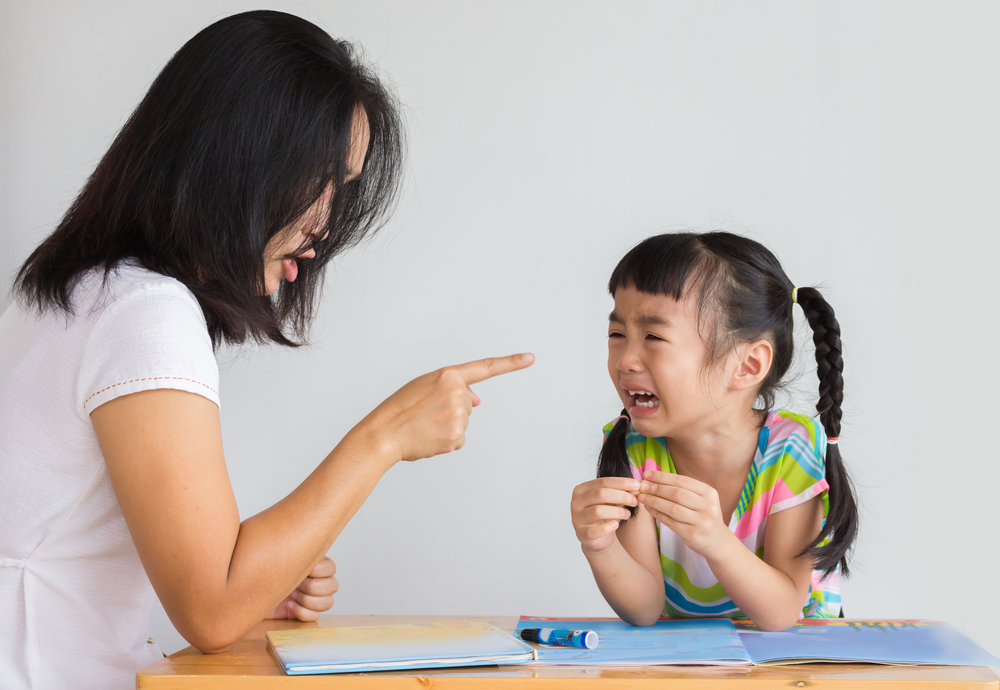Contents:
- Medical Video: 10 Psychology Problems Caused by Parenting Behavior
- What is the sign of narcisstic personality disorder?
- If you show these signs, you may be a narcissistic parent
- The impact that can be experienced by children from narcissistic parenting
Medical Video: 10 Psychology Problems Caused by Parenting Behavior
It needs to be understood first that narcissism discussed in this article is not a form of high self-esteem or passion to post dozens of selfies on various social media sites as a proof of love for yourself (physical appearance). What is meant is narcissistic personality disorder (NPD), a real personality disorder possessed by 1% of the world's population.
What is the sign of narcisstic personality disorder?
People who have NPD usually show arrogant behavior, lack of empathy for others, and need / desire as well as demands for praise. People with this condition are often described as arrogant, selfish, manipulative, hooked for something, and feel very confident that they deserve special treatment like the goddesses of those around them.
People who have NPD cannot accept criticism to the point that they may explode angrily when their nature is criticized, or they may falsify empathy just to get plus points from the community. They may show remorse, pity, or generosity, but do not want or fail to make a real change in their attitude.
These narcissistic personalities emerge consistently in the work environment and social relationships, even how they act as parents to their children.
If you show these signs, you may be a narcissistic parent
Just like the characteristics of narcissists in general who want to look superior in all fields than others, narcissistic parents tend to have expectations that are too high for their child's growth and development. Most narcissistic parents want to show off children's achievements and always encourage children to do more than their expectations for their own pride.
Achievement expectations made by narcissistic parents are not based on intention to make children better, but tend to be based on their own desires and needs. This makes parents less / less treat their children as individuals as a whole, but as a way or "puppet" that will give their personal benefit.

In encouraging children to meet / exceed their expectations that are already too high, parents tend to manipulate children's emotions and thoughts. They don't hesitate to blame (blaming), make children feel guilty, make them feel ashamed of themselves, or put mental pressure on their children to obey their parents' wishes. The manipulation behavior occurs because parents consider the attention and affection they give to be a price that must be paid in a reciprocal relationship, compared to the expression of parental-child parenting as in the case of selfless and remuneration.
When children begin to grow up, narcissistic parents can be possessive. They tend to want their children to continue to be under their influence and can show an attitude of dislike when the child has started to live independently.
The impact that can be experienced by children from narcissistic parenting
As a result of this deviant parenting, it is not impossible that the relationship between parents and children tends to be rigid because parents are too harsh, especially when children make mistakes. Narcissistic parents also tend to lack understanding or not pay attention to the emotional condition of their children because they have a low empathy for their children.
The main impacts experienced by children due to parenting narcissistic parents are obstacles to personality development which can be realized in different ways, such as:
Easy to blame yourself. Children raised by narcissistic parents tend to have low self-esteem. Children raised by narcissistic parents will find it easier to experience doubts and anxiety in making decisions. The reason is that they are accustomed to adjusting their actions according to the "rules" of their parents just not to be scolded. As a result when they do something, they tend to be more easily dissolved in remorse and blame themselves continuously.
Don't have your own opinion. Opinions or personal views on a matter are needed to make decisions and determine traits. But if children are raised by narcissistic parents, they tend to suppress or show dislike when children have different opinions. As a result, when they grow up they are difficult to hold and express their personal opinions on something.

Too worried about relationships with other people. This is because emotional conditions that are less stable so that someone too worried about their relationship with others will be fine or not. This form of excessive worry can make someone avoid relying on others or vice versa too dependent on others.
Too independent. This is one way a person responds to parenting narcissistic parents. In this case too being too independent is not based on an independent attitude but rather by the view that no one can be trusted. As a result they also have difficulty to have emotional closeness with other people.
Less attention to yourself. Children who are sensitive or have high empathy will respond to the narcissistic attitude of parents by not paying attention to themselves and always paying attention to the needs of others, including parents and closest people. The negative impact of this is that they pay less attention to their own needs, and even tend to hate themselves for fear of burdening others.
Narcissistic. This domino effect is more likely experienced by children with stubborn personalities. As a result of taking care of narcissistic parents for the rest of their lives, they tend to follow the same parenting style and views as their parents. Another impact that might occur if a child grows up as a narcissist is that they tend to consider achievement, brilliant career, or employment status as an important thing in his life that will determine their self-esteem.












